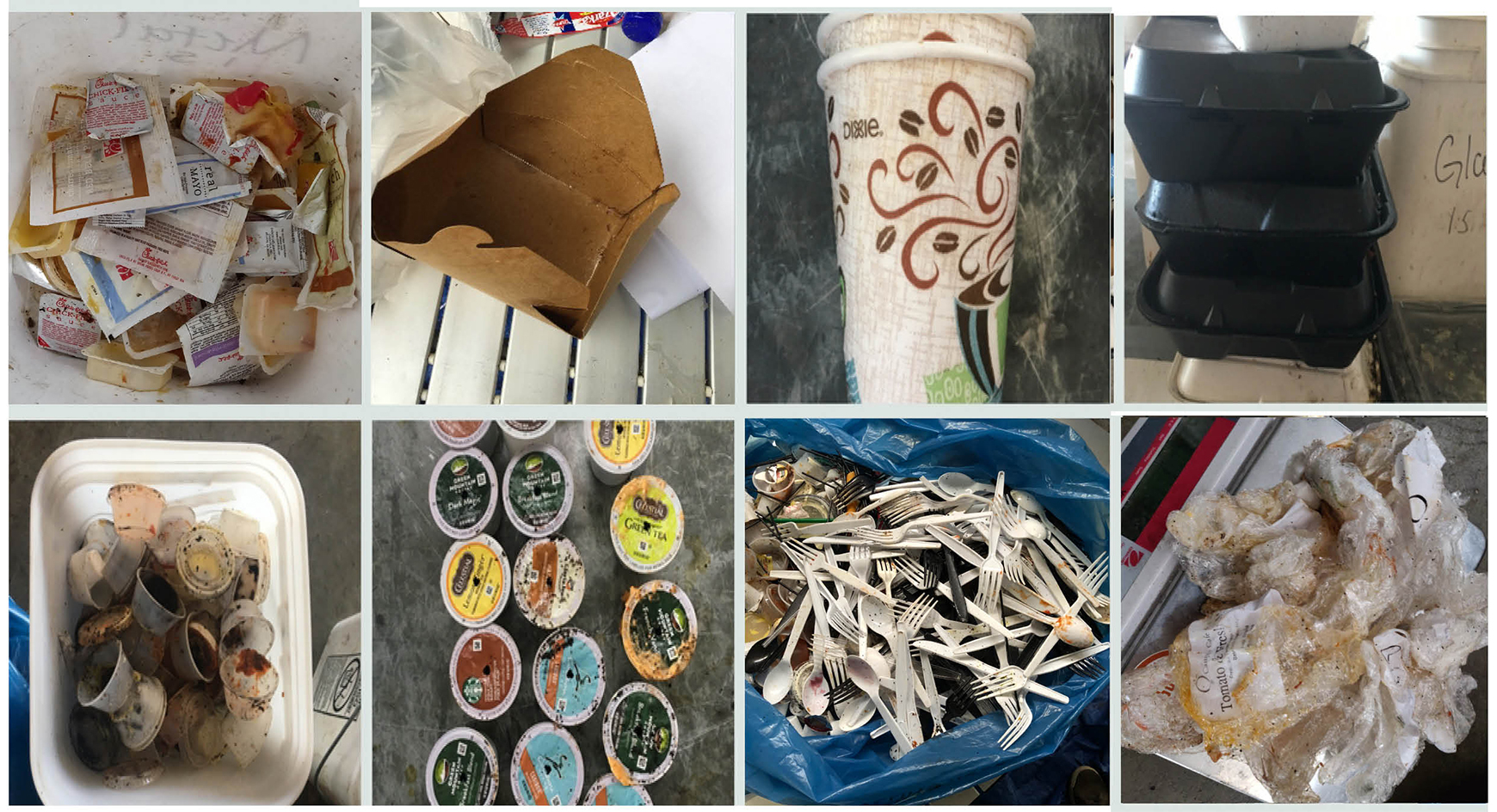Image: Samples of food packaging found by Resource Recovery during waste audits
Tracking new and notable words that reflect ever-evolving culture, “single-use” was named the word of the year in November 2018 by Europe’s Collins English Dictionary after editors saw a four-fold increase in use since 2013. According to the dictionary, single-use “refers to products, often plastic, which are made to be used only once before they are thrown away.”
The UK Royal Statistical Society’s winning International Statistic of the Year in 2018 underscores the environmental damage caused by the unchecked proliferation of plastic single-use items: 90.5% of plastic waste has never been recycled.
Plastic that is not recycled is incinerated or accumulates in either landfills or the natural environment as witnessed by French long distance swimmer Ben Lecomte, who recently swam 242 miles through the highest concentration of ocean plastic in the world, the “Great Pacific Garbage Patch.” He documented awe-inspiring wildlife—part of our food chain—navigating all kinds of plastic fragments, microplastics, and abandoned fishing nets.
What can we do?
UT Resource Recovery has previously publicized that UT Austin throws away enough single-use coffee cups, which are not recyclable due their layered composition of paper and plastic, that if lined up end to end would reach 156 miles from Austin to Houston.
UT Austin has become more conscious of how our habits and behaviors can impact the environment.
Recent legislation by Student Government and the Graduate Student Assembly call attention to single-use food packaging on campus and the opportunity to switch to compostable alternatives. Resource Recovery waste audits document the scope and scale of food service packaging waste on campus, and the data are used to provide guidance to food vendors on campus. As an example, Texas Athletics restricts the packaging for products sold in the stadium to recyclable or compostable options and last football season reached diversion rates as high as 76%.
Businesses listen to their customers. Speak up about your sustainability preferences. This July, 230 million worldwide participants of Plastic Free July were encouraged by the Australian offices of not-for-profit Plastic Free Foundation to find alternatives for the top four most prolific single-use plastics: plastic bags, water bottles, to-go coffee cups, and plastic straws. The Plastic Free Foundation reports that Plastic Free July participants cut their use of disposable packaging on average by 62 pounds per household per year, contributing to a total savings of over 1 billion pounds of plastic waste each year.
As Ben Lacomte notes, “I want people to understand that the solution is in everybody’s hands. It’s true when people say we don’t need one person to do it perfectly, we need millions to do it imperfectly.”
Author Lindsey Hutchison is the Zero Waste Coordinator in Resource Recovery

